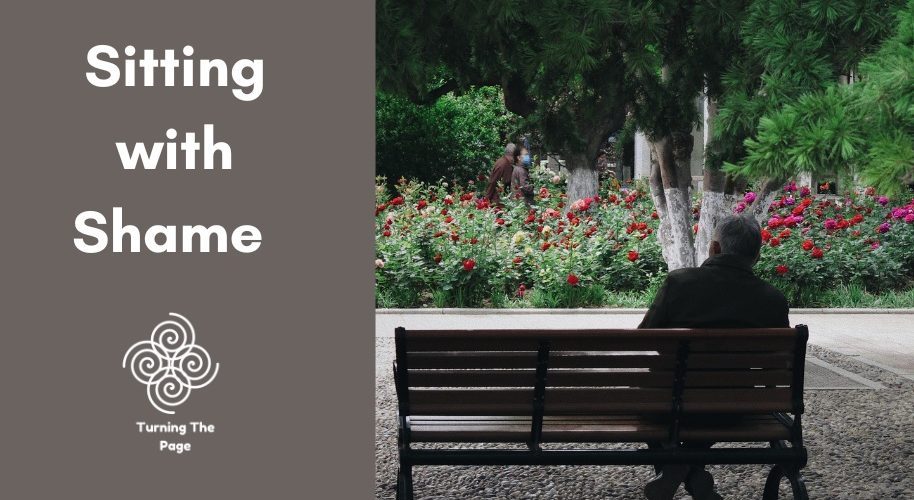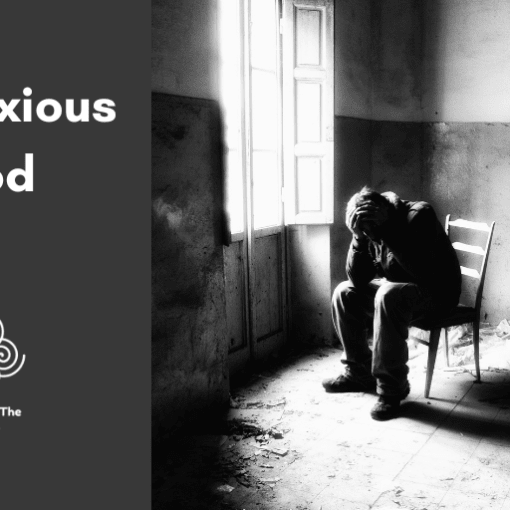Sitting with shame can suffocate life, but sitting in solidarity with someone in soul talk can break its control.
It’s there if you want to hear it. A sneaky, whispery voice from the past.
You hear it in others. They may have said nothing directly to you, but it’s there. Shame is a shadowy character.
It hides in the corners, and under the floorboards. It creeps around trying to be unnoticed.
But you can always guarantee, if given a prod, it will come out and haunt you down.
Shame splices into your soul that you are flawed. Actually, worse than that, it’s more like ‘YOU ARE A FLAW, A MISTAKE, AN UGLY WASTE OF SPACE.’
Shame would never say, with objective honestly, that you have flaws. It always says You are a flaw.
So we sit on a park bench with shame. Like old man or woman, critical of everything you do, they sit next to you mutter reminders.
Sitting with shame
It’s a form of hell to have shame suffocating your life.
You melt into its personality, and you become the shamed one.
Shame loves secrecy. It grows the more we hide it.
And don’t we automatically try to hide the failures?
Ever since Adam and Eve plucked off some fig leaves and hid, it’s always been the same. Hide ourselves, hide the flaws, hide the failings.
Immediately the two of them did “see what’s really going on”—saw themselves naked!
They sewed fig leaves together as makeshift clothes for themselves. Genesis 3:7
We hide ourselves under activity, under costumes, under downplaying, and diversionary tactics perfected over the years.
But these clothes are makeshift.
Never perfect, always vulnerable and always requiring energy to maintain.
The energy that was meant for dancing is now used for maintaining the facade of having it all together.
It’s so draining, but then we get used to it. It becomes the norm.
Then someone comes and wants in-to-me-see.
We think that if the dark place was ever known, then we would be rejected, abandoned, and further exposed. So we keep up the pretence.
Sitting with Solidarity
What we as shame carrying humans most need is someone to sit in solidarity with us.
Solidarity. What a powerful word.
Definitions.
- communion of interests and responsibilities
- mutual responsibility between two or more persons
- quality in a community of being perfectly united on some question
- interdependent, complete, entire
The most powerful gift you can give to someone when shame starts shouting is your quiet presence.
You’re there, quiet, reassuring, solid, in communion with them.
You don’t downplay or minimise their confession.
You don’t up play, maximise or condemn them in their confession.
You don’t expose them further to others by sharing their confession.
You hold their confession in solidarity. In silence, compassion, and united tears.
It’s a sacred moment. A place of holy communion where love mingles soul to soul with a slow dance.
Stones dropped to the dust
Jesus sat with solidarity, to the shame of an exposed woman.
This is a powerful image from artist David Hayward.
Jesus went across to Mount Olives, but he was soon back in the Temple again.
Swarms of people came to him. He sat down and taught them.
The religion scholars and Pharisees led in a woman who had been caught in an act of adultery.
They stood her in plain sight of everyone and said,
“Teacher, this woman was caught red-handed in the act of adultery. Moses, in the Law, gives orders to stone such persons. What do you say?”
They were trying to trap him into saying something incriminating so they could bring charges against him.
Jesus bent down and wrote with his finger in the dirt.
They kept at him, badgering him.
He straightened up and said, “The sinless one among you, go first: Throw the stone.”
Bending down again, he wrote some more in the dirt.
Hearing that, they walked away, one after another, beginning with the oldest.
The woman was left alone. Jesus stood up and spoke to her. “Woman, where are they? Does no one condemn you?”
“No one, Master.”
“Neither do I,” said Jesus. “Go on your way. From now on, don’t sin.” John 8:1-11 (The Message)
I would love to know what Jesus wrote in the dirt.
Perhaps it was the Hebrew word nāśā which means to take away, forgive or pardon.
I want Jesus to sitting next to me writing in the dust of my life.
I want someone like you to sit with someone like me. Someone who can be a little Christ and quietly say, ‘Where are they? Where are the shame slingers‘?
I will sit with your shame and confuse it. Shame says you’re a reject, and that no one will accept you because of what happened.
Shame can’t serve two masters and I am there saying ‘You are loved.’
Shame hates that. Love confuses shame. It weakens its grip until it dissolves away.
Please sit with someone and write in their dirt that they are loved, held, known, and forgiven. Shame has no place in this conversation.
Quotes to consider
- Love wins over guilt any day. It is sad that we settle for the short-run effectiveness of shaming people instead of the long-term life benefits of grace-filled transformation. Richard Rohr When Things Fall Apart
- In the moments of insecurity and crisis, “shoulds” and “oughts” don’t really help; they just increase the shame, guilt, pressure, and likelihood of backsliding. It’s the deep “yeses” that carry you through. Focusing on something you absolutely believe in, that you’re committed to, will help you wait it out. Richard Rohr When Things Fall Apart
- Shame is the raincoat over the soul repelling the living water of Jesus that would otherwise establish us as the beloved of God. Andrew Comiskey
- An addict needs shame like a man dying of thirst needs saltwater. Terrence Real
- Shame causes us to see our identity as flawed rather than seeing ourselves as having flaws. Dan Allender Hope when you’re hurting
- I think that is God’s plan – to meet me where I am, in all my ugliness, not where I pretend to be or wish I were; to meet me in my weakness and shame and fear and to give me hope that God loves me, that He can change me, and that He can use me. Dr. Larry Crabb, Real Church
- Diets underscore one of the most paradoxical aspects of toxic shame. In dieting and losing weight, one has the sense of controlling and fixing the problem. As you saw earlier, control is one of the major strategies of covering up shame. All the layers of cover-up are attempts to control the outside so the inside will not be exposed. John Bradshaw
- The best way to come out of hiding is to find a nonshaming intimate person or social network. The operative word here is “intimate.” We have to get on a core, gut level because shame is core, gut-level stuff. Toxic shame masks our deepest secrets about ourselves; it embodies our belief that we are essentially defective. John Bradshaw
- To be known means that you allow your shame and guilt to be exposed—in order for them to be healed. Curt Thompson
Questions to answer
- What incidents have you had in your life where you have felt shame?
- What are the qualities of a person you would like to see before you opened up to them about your shame?
- How much does shame influence your behaviours?
Formation exercise
- Journal words that would describe a person who can sit well with shame e.g. Loving, compassionate etc
Further reading
Barry Pearman
Photo by Kelsey He on Unsplash






